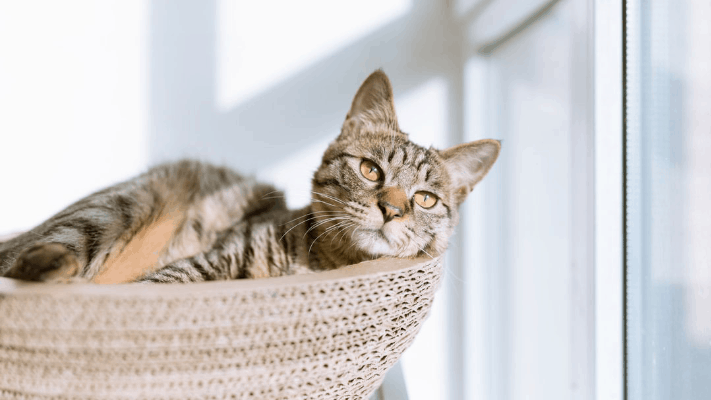
Poor air quality is one of the biggest invisible dangers that we face on a daily basis. And while you might think air quality only affects the outdoors, the truth is that your home could be suffering from poor air quality, too. That means you and your four-legged friends are at risk. Here are a few tips to help you protect your pets from poor air quality indoors.
Make Cleaning a Priority
Cleaning might not be the most entertaining task in the world, but it can go a long way when it comes to improving the air quality in your home. Making a point to vacuum and dust your home at least once weekly will make a big difference in just how easy it is to breathe when you walk in the door. And it will make breathing easier for your pets, too! Dogs and cats are susceptible to allergies and nasal irritation just like we are. So when there’s excess dust, dander, and pollen in the air, you and your furry friends are probably suffering.
Brush Your Pets Daily
Whether you like it or not, your pet’s shedding certainly doesn’t help the air quality situation in your home. But this simple task has multiple benefits. Not only can it reduce the amount of particulate in your home’s air, but it can also help your pet feel more comfortable, especially in the warmer months. This is a good hygiene practice for you to get into regularly. If you have a hypoallergenic pooch, you might be able to cut the brushing down to once or twice weekly.
Check Your Smoke Alarms
If there’s smoke in your house, you need to know about it. Your pets are lower to the ground, which means in the event of a fire, they’ll likely be most at risk of smoke inhalation. The NFPA recommends that residential smoke detectors be operated by a 10-year, sealed-in battery pack. If you’re not sure when your smoke detector was last replaced, it’s probably time to contact your landlord or have a new one installed. This way you can make sure everyone in your home is safe.
Keep Pets Active
A healthy pet is a happy pet, and part of keeping your pet healthy means keeping them active! This includes daily walks with your dog, enrichment activities for your cat, and overall just setting time aside to play. When your pets are more active, they can develop stronger immune systems and better respiratory function. While it’s your job to make sure the air quality in your home is great, a healthy pet will be better able to cope with temporarily poor conditions.
Know Your Pet
A number of dog and cat breeds naturally have trouble breathing. If your four-legged friend has a flat face or a scrunched-up nose, it’s likely that they’ll experience respiratory issues regardless of how great the indoor air quality is. As a pet owner, it’s your responsibility to understand the risks that come with your pet’s breed. If poor respiratory function is one of them, you may need to be even more rigorous about improving your home’s air quality to protect your pet and ensure they live a healthy life.
Pets are often our best friends. And it’s our job to take care of them! If you’re concerned about poor air quality in your home, keep these tips in mind to help both you and your furry friends breathing easy.



The article is very interesting.
**Comment:**
I recently bought an air quality controller fromSensibo, and it has become one of the best gifts for my home! This compact and smart device helps monitor and improve indoor air quality, which is especially important in urban environments. The device easily connects to my smartphone, allowing me to control all parameters through a user-friendly app. Sensibo measures CO2 levels, humidity, temperature, and even the presence of harmful substances, enabling me to take timely actions to improve the microclimate. Thanks to this gadget, I feel much better and more confident, knowing that the air in my home is always clean and safe. I highly recommend it to anyone who cares about their family’s health!